Sign up for the Socialite Life newsletter. A three-time weekly dose of divas, drag queens, hot male celebrities, models, & pop culture news. Get it in your inbox.
The struggle for the recognition of gay marriage in the church is played out on the big screen in Mysterious Ways, a new independent feature from New Zealand. The film debuts on April 30 in the US on Vudu, iTunes, and Google+.
The film, directed by Paul Oremland, follows the media storm that threatens the marriage between an Anglican Vicar – played by Richard Short and his Samoan boyfriend – played by Nick Afoa after they announce their intentions to have a traditional wedding in the church. The cast includes Joe Malu Folau and Maureen Fepuleai. The script was written by Paul and acclaimed Kiwi writer Dianna Fuemana, and Ngaire Fuata served as the film’s producer.
We spoke with Paul and Richard about making Mysterious Ways and the meaningful story it tells in our exclusive interview.
Paul, what was your inspiration behind putting this movie together?
Paul: Oh, where does one start? I mean, look, I was trying to get off the ground for a long time. I mean, when marriage first became possible, I was living in the UK and I was working for a company that actually did a big documentary about the split in the Anglican church over this issue and it just grew from there. It also came from personal experience. I mean, I guess I call myself a spiritual atheist, but I was brought up in a fundamentalist church and I just see from personal experience the harm and the pain that so many young and older Christian and not just Christian, but religious, gay people who want to have faith struggle with.
And in this day and age, it just seems sad that families are split apart. I cannot begin to tell you the number of people I meet in New Zealand, and I know it happens here and around the world, that struggle with the issues. And so, I wanted to make a film that explored this, but didn’t just attack the church because I just felt for me, it’s about love. And I think when the church works well, it provides community.
I know this was a labor of love, but what was the production process like for the film?
Paul: Long. I really struggled to get the script right. It was always a biracial story and, in fact, I started working on it in the UK, but then when I came back to New Zealand, I thought Jason should be Samoan. I had a good friend who Jason’s partly modeled on. And then I teamed up with writer Diana Fuemana because she’s a very respected Samoan playwright, and we went through a number of scripts and I think eventually one of the scripts ended up in your lap, Richard, at some point and the New Zealand Film Commission gave us some development for it, and at one point we actually had a lot of interest from big international finance companies and stars and all of that.
But in the end, the Film Commission, which are the principal funders in New Zealand, sort of said, “Look, we’ve just done three gay films and we don’t want to do another one. Sorry, boys.” By this time, I teamed up with the producer Ngaire, who is one of the leading Pacific producers in New Zealand, and I had a little bit of money. My mum died and left me literally, you know, 100,000. My partner had 100,000. I phoned Richard and asked him “Are you still up for it?” And we just plunged in and it was an amazing experience.
There’s a lot of fantastic technicians in New Zealand, and they read it, I mean the cameraman and the art director, and they just loved the script and we just, we had 16 days and you know, Richard, I don’t, you’re more, I’ve done a lot of documentary, this is my third drama, full scale drama, but um, I mean certainly it was pretty, pretty crazy, pretty full on…but it was also joyful somehow, wasn’t it?
Richard: Yeah, as much as you say it takes forever to get to the start line, once you’re at the start line, it’s a, it’s a hundred-meter dash, basically, let’s do nine scenes a day and just go for it. But I think you enter into an agreement with these sorts of films and if everyone’s in agreement that the script is as good as I think it is, or Paul thinks it is, then nothing is a barrier. Nothing’s an obstacle. You all agree to just run and gun until you get to the wrap, which is, you know, maybe not even two weeks later. It was intense.
Paul: We also had COVID and there were all sorts of other crazy things going on. I’ve seen the film now in New Zealand, they did a little theater run and it also went out on national television down there and I’ve seen it mean things to people, which is just so fantastic. It was worth all the pain. I mean, and as I said, it really, you know, I’m passionate about, you know, the themes behind the film and I’m also really proud of the fact that Pacific people love the film, and that’s down to Ngaire, and who ensured that, and Diana, who I think brought an authenticity to the characters. And obviously, Joe did an amazing job exploring something that’s quite uniquely Samoan in terms of the fa’afafine, that type of cultural backdrop. But for me, it’s a great honor that it’s been accepted by the Pacific community.
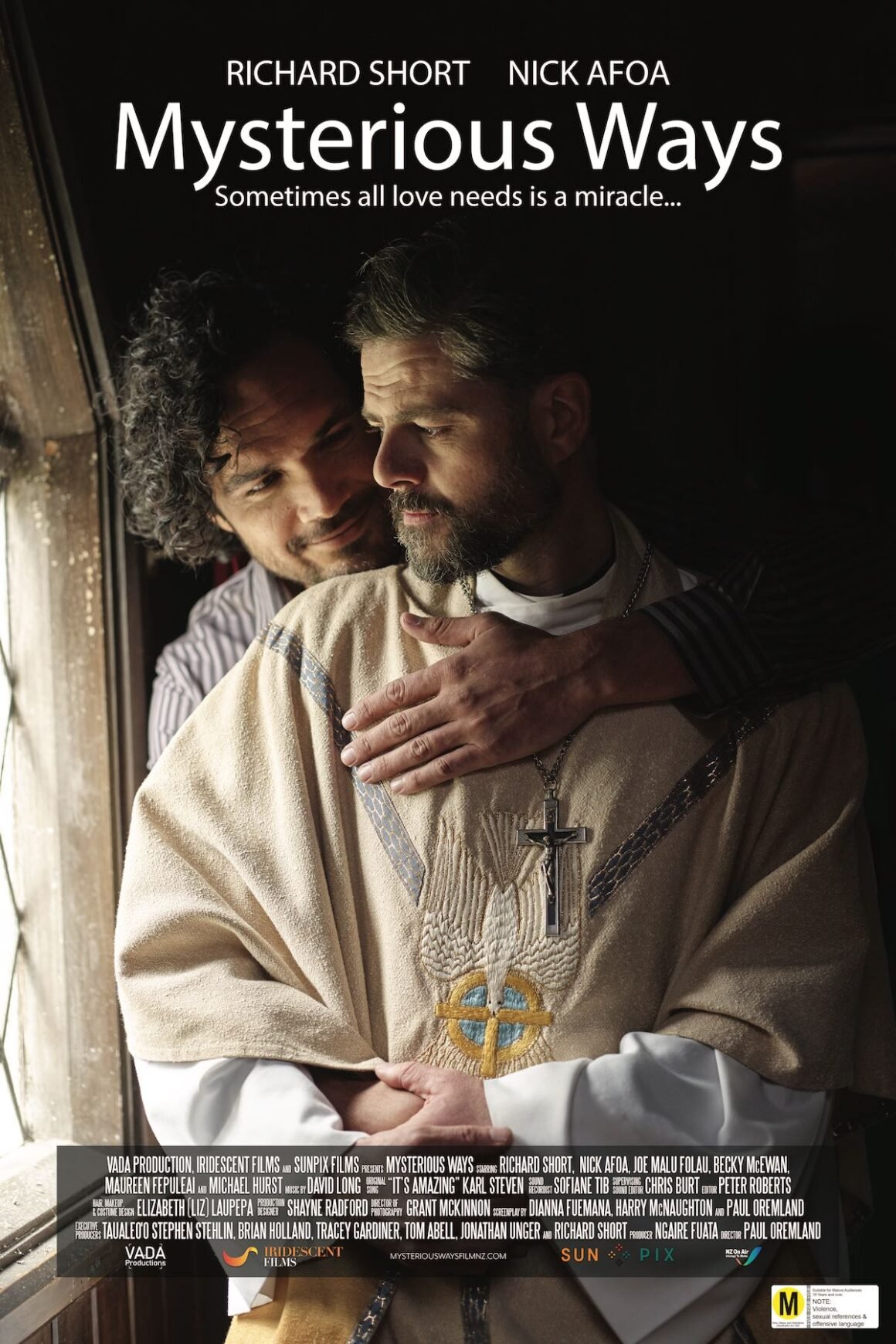
Richard, how did you get involved with this film?
Richard: One of the writers, Diana Fuemana in New Zealand, is a well-known playwright down there. She knew of my work on a show called Mary Kills People, a Canadian TV show. She reached out and told Paul, you gotta look at this guy, yada yada. And they put it in front of me and I thought it was one of the most brilliant, beautiful scripts I’ve ever read, really. I mean, I questioned why I was the New Zealand gay vicar. I was like, well, I’m not natural born to any of those things, but once I’d read it, I couldn’t let it go.
And after that, it took a long time. It took years of finding finance and, you know, the usual story with an independent film. It really does take a village. It takes a long time too but we pushed on and I got to know Paul more and developed it a little with him over the years and kept pushing him when he was down on it as well.
There’s nothing like this script. I mean, listen, it’s a miracle. This film was made for like 50 cents at a packet of chips. The fact that it’s now shown in I don’t know how many countries I mean, they had it on prime time in New Zealand on their BBC One kind of network on Easter Saturday over there, which is remarkable, especially considering the subject matter. But for a film like that for us even to be talking about it, let alone get made, it’s quite extraordinary and I think that’s power as testament just to the script, just to the beautiful nature of the story. It really is lovely.
You’re heterosexual and you’re playing a gay man. Was that a challenging part for you? How do you feel about straight actors playing gay roles?
Richard: Well, first and foremost, from my perspective, this doesn’t even come into it, right? I don’t read the script and go, Oh my God, he’s gay. What am I going to do? Not really, because if I could only play people called Richard that were white and lived in the north of England, I’d have a really narrow resume and a really crappy show reel, to be honest.
I got into this game to walk a mile in another man’s shoes, you know, that’s the best thing about it. I think it’s why most actors are relatively liberal, actually, because they get to see things from other perspectives. But anyway, in my view, there was no challenge whatsoever.
I was concerned about that too, because I live in the States, so I kept asking Paul if he was okay with it but he never had any reservations, and, and Nick too, neither of us are homosexual. The only concern I had was that I’d have chemistry with him as I would when I do a show with a woman, so Nick and I went out for a beer together in Auckland when I arrived. He just told me his family had extended with a new baby and we got on like a house on fire.
And from that moment, I was like, oh, you’re going to be fine, mate. And he’s like, you’re going to be fine mate too. And that was it. I actually think one of the positives of the film is that in my mind, when I watch it as a viewer, I think the chemistry is great. I don’t think anyone’s had an issue with believing that Nick and I would love one another. I always pretend to love someone, you know, and that’s what I have to do. It’s my job. And, you know, Nick’s a gorgeous man, so he’s easy to love.
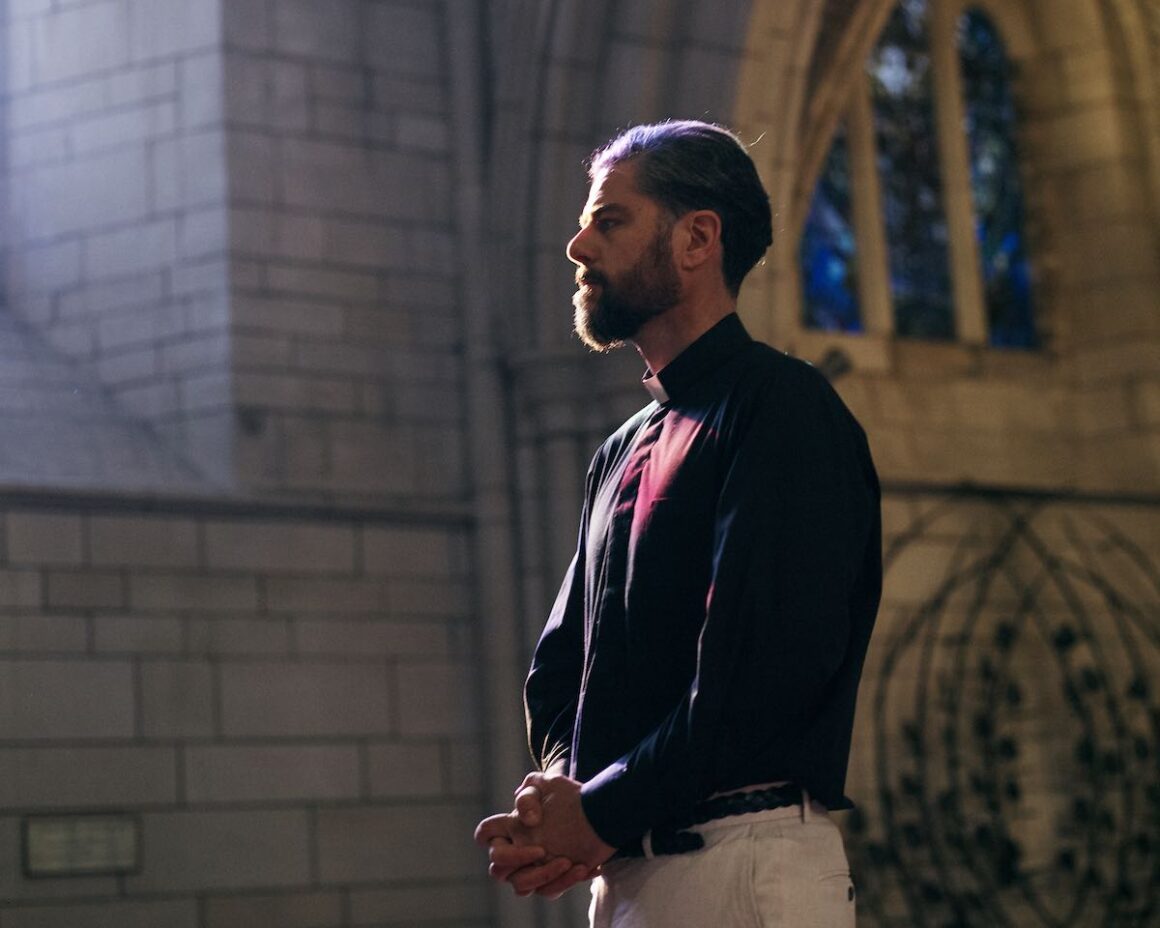
You talked about the Pacific participation and that character of Billy as a fa’afafine. Was it important to include that role in the movie?
Billy was based on people I knew or someone I knew, and I think it was Joe that I think brought the specifically the more traditional cultural aspects to it, along with Aunt Nola, obviously and that was always in the script but it was a little bit open as to which way we would take it. It could have been a more traditional trans rather than two spirit. And I mean, these are not areas that I’m an expert on but Joe seemed to tape in, he did a fantastic performance.
Joe actually got COVID the week before we were due to start filming and no rehearsals. I’d never met Billy. Joe’s a fantastic actor, but nothing like Billy at all. He just found the character based on the script. The script, I think, could have gone either more traditional trans or, and we adapted a little bit as we went.
The culture in New Zealand is still quite big and is very respected and throughout the whole of the Pacific, not just Samoa, but most of the Pacific islands have a two spirits. I think the two spirits is possibly more an American reference, but they have role, definitely. And I believe it even exists in Mexico and places like that. I mean, I’ve done some research and I think most cultures seem to have it before Christian missionaries arrived.
Richard: I mean, as someone entirely ignorant of it before we did the film, I would say if nothing else, it like the fa’afafine as he’s referred to in our film, it’s just acts as some sort of wonderful kind of cipher some sort of, neither this nor that, but definitely its own thing, their own thing.
And, and because without giving spoilers, whatever Billy may be, or may not be, it kind of works beautifully for that. You know, because how do you pin down and specify an angel? How do you really do that without ruining the whole film? So, I think it kind of works gloriously for that person.
How has the film been received so far?
Paul: In New Zealand it’s been received very well, and we’ve had some very good reviews. It’s tough, look, it’s a small film, and we’re struggling to get it out there. Nobody’s entered into this to make money, and nobody’s going to get rich on it, but I want people to see the film that, you know, And I’ve seen it, you know, as I said, I’ve seen it mean things to people and not just, you know, LGBT, Muslim, not just, you know, the rainbow community, but broader.
It’s been lovely to see it embraced by quite a wide range of people. A number of friends of mine said, “Oh, this is such a nice film. I can bring my mum to this.” Whereas, you know, quite often gay films tend to focus on sex, drugs and rock and roll – myself included. My previous work was very much that.
But because it’s not a big film, we’re not able to get the attention and the big festivals. And because it doesn’t attack religion, you know, the gay community has been so hurt by. You know, most, many religions still say we’re sinners and because of that, I think the gay festivals have not picked it up. it’s been quite sad that none of the big gay festivals would show it but distributors have. Salzgeber, a very respected distributor in Germany, have it and are putting it out. And then, obviously, we’ve got screening here in L.A. so it’s finding its audience. I’m getting lovely messages from people. It’s on demand in New Zealand now and it went out on Easter Saturday at 8:30 in prime time, which in itself is unbelievable. I mean, TVNZ is the number one station in New Zealand. There was a little bit of a few negative comments. People were a bit upset that. They would show that, but by and large, I’m getting lovely messages saying how much the film has meant to people. We had a little screening down in Ngaire’s hometown and a lesbian couple came up and she is a vicar and she said, that’s the story of my life, you know?
It’s lovely. And, and seeing it in a cinema, I’ve seen people cry, which has been amazing, and they gasp when Richard delivers that line, “What life did you have before me?” or something to that effect. And the whole theater gasped at that. And I just thought, they’re engaged. And that was just so, you know, fantastic.
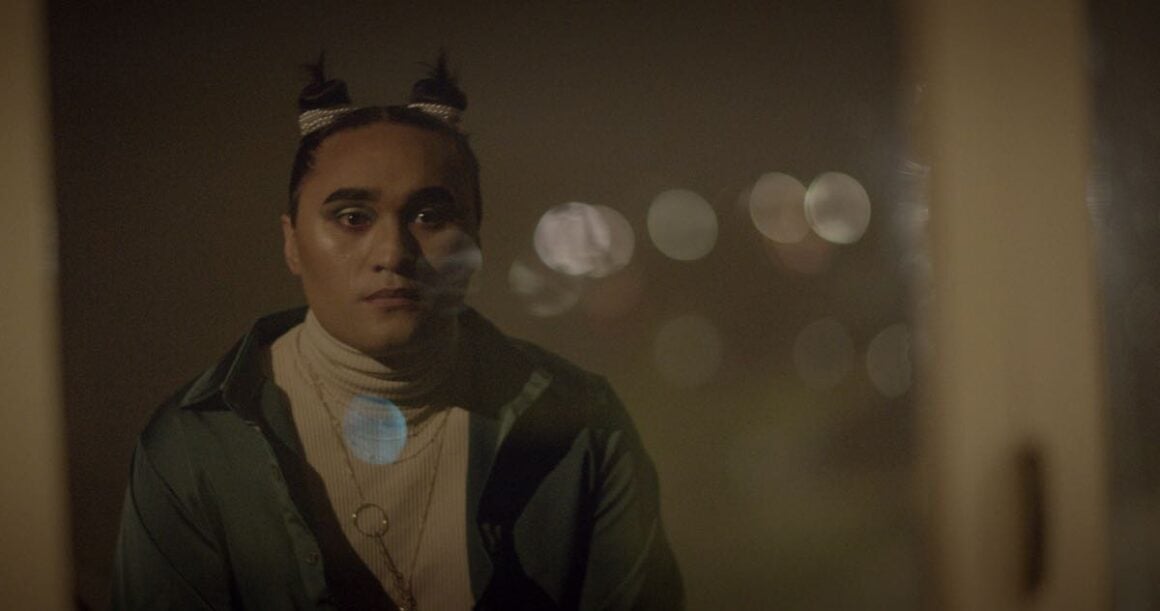
So as the movie is coming to America now, what are you hoping that audiences will be taking away from the film?
Paul: That gay people can have faith and love triumphs.
Richard: I would just say that anyone could fall in love with anyone, you know, and it’s none of our business if they do so. It’s really as simple as that, but that’s what I take from it as a heterosexual man, watching it, I think, wow, this is a real pure love and those around them see it as well, like Peter’s family, you know, Peter was a married heterosexual man and it just happened to fall in love with, with a guy.
Paul: I think that’s what everyone else can accept. That’s the character. Again, I’ve met a number of gay men who were happily married. And in the film, I think that Peter was happily married. His wife died. I’m not sure who knows what would have happened if she hadn’t. But, you know, to try and label people in terms of the gay, straight, and again, that’s something that I feel everyone gets hung up putting people into little boxes. And, you know, for me, it’s about relationships, about community and about family. And that’s what, and again, it’s, you know, as Richard said, you know, within the film, you see some of the church people are actually quite supportive, you know, and I think that’s the way it should be.
And yet it’s so hard because my parents remained devout. They were Seventh Day Adventists, which is a fairly fundamentalist, evangelical religion. And, funnily enough, my dad got on very well with my partner who I’ve been with many years, but, I mean, this is heavy, but as he died, he said, “Well, I’m sad you’re not going to be in heaven with me, Paul.” That was actually the last thing he said to me. I know he didn’t mean it because he actually loved and really got on with my partner and my mum was fabulous and really embraced my partner.
Do you think we will see a day in our lifetime where these unions will be recognized by the church?
Paul: Who’s going to speak on behalf of the church? I mean, common sense would say, yeah, we’ll get there…I think humanity is, believe it or not, heading in the right direction, if you look back over millennia, but right now we seem to be sort of one step forward, two steps back…but as a simplified answer to your question. Yes, I do think we will. I do. I hope we will.
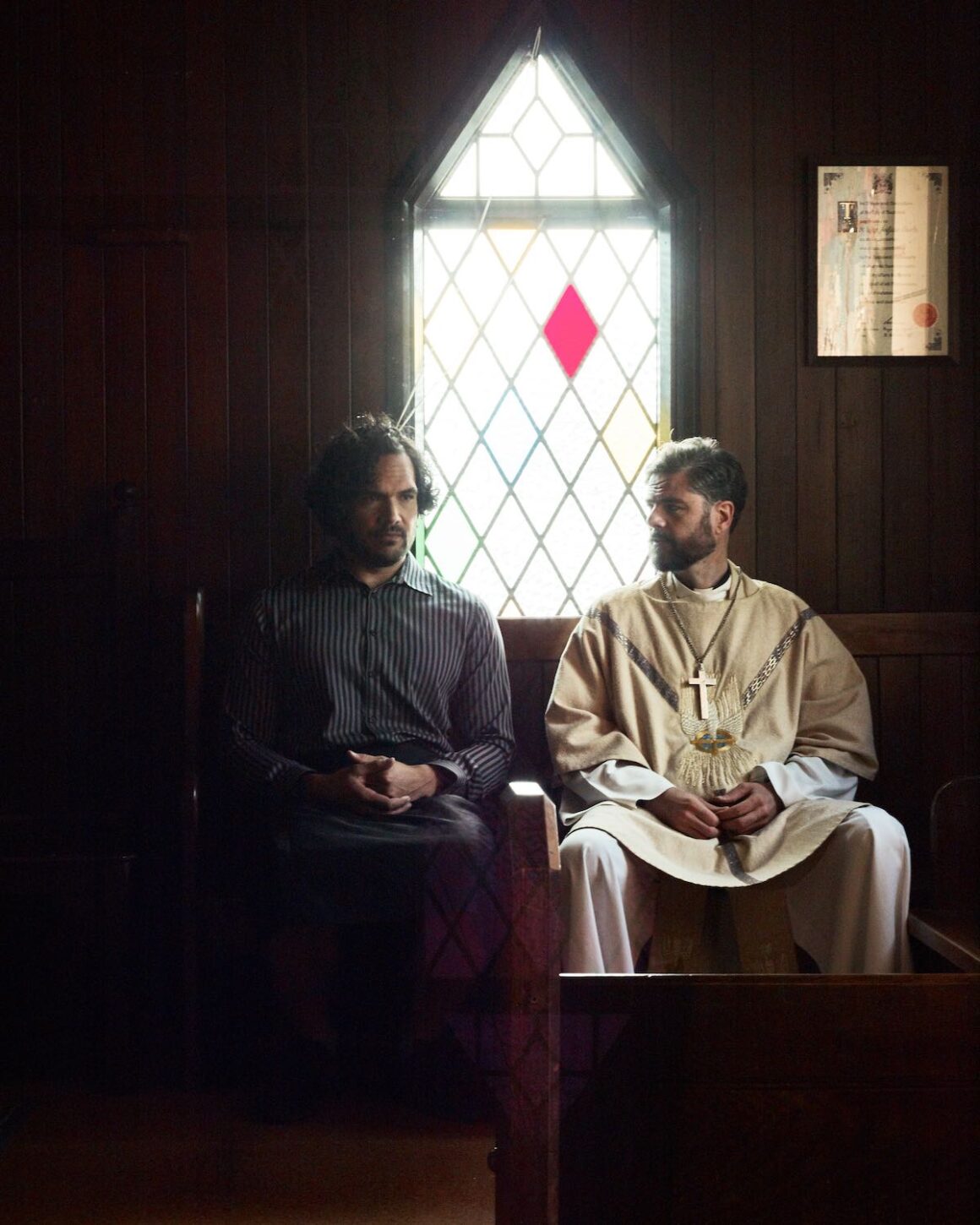
Mysterious Ways debuts on Vudu, iTunes and Google+ on April 30. Keep up with the movie on Instagram, Facebook and on the official website.



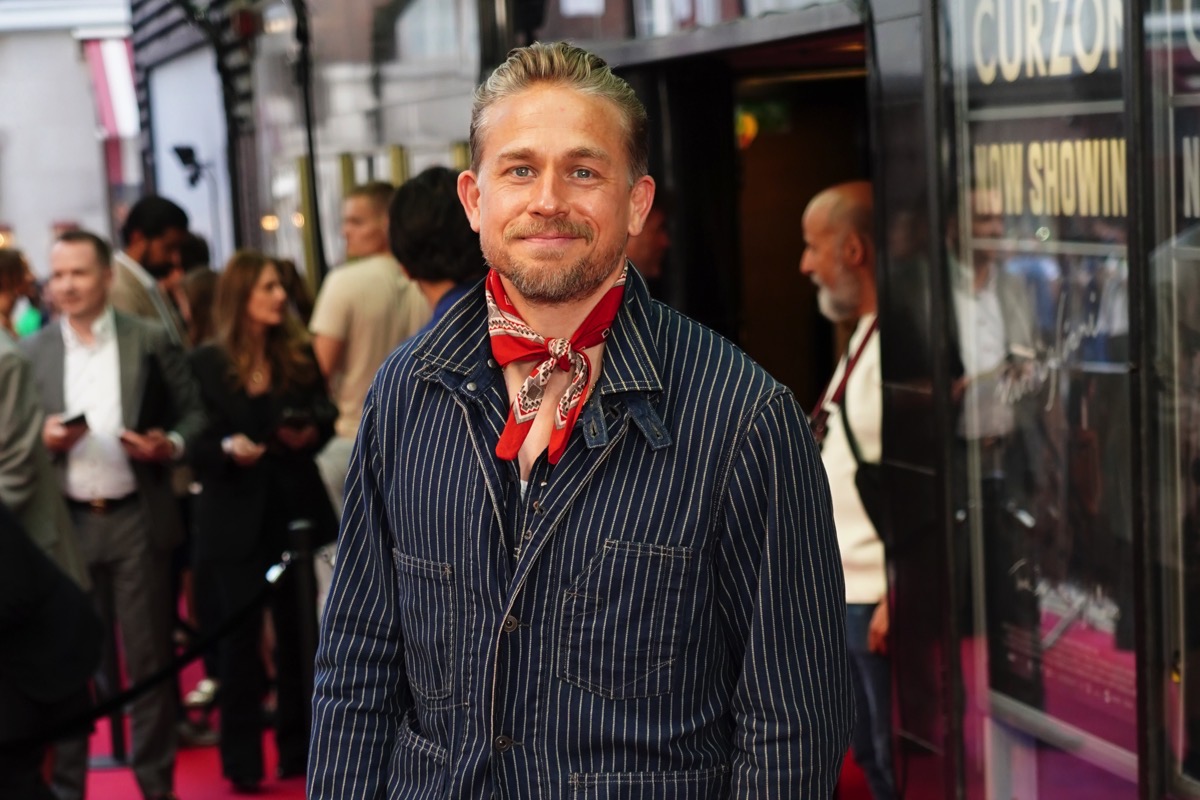
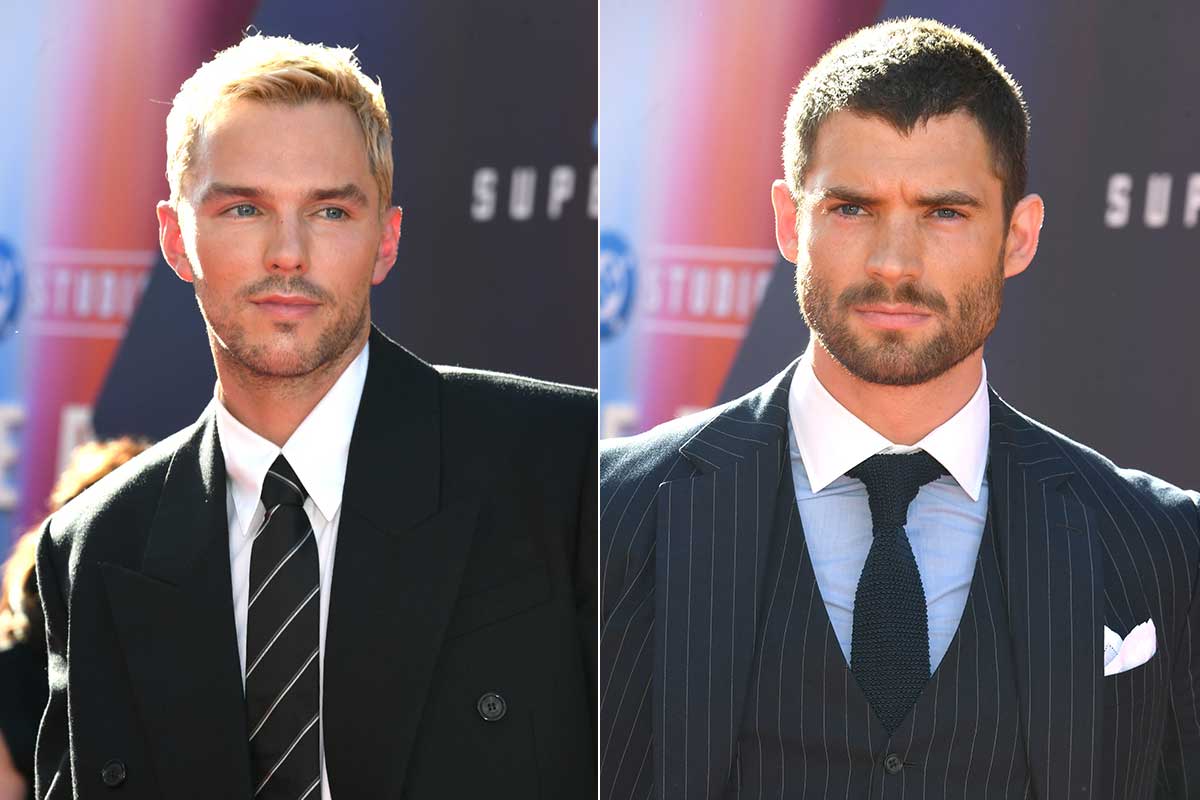
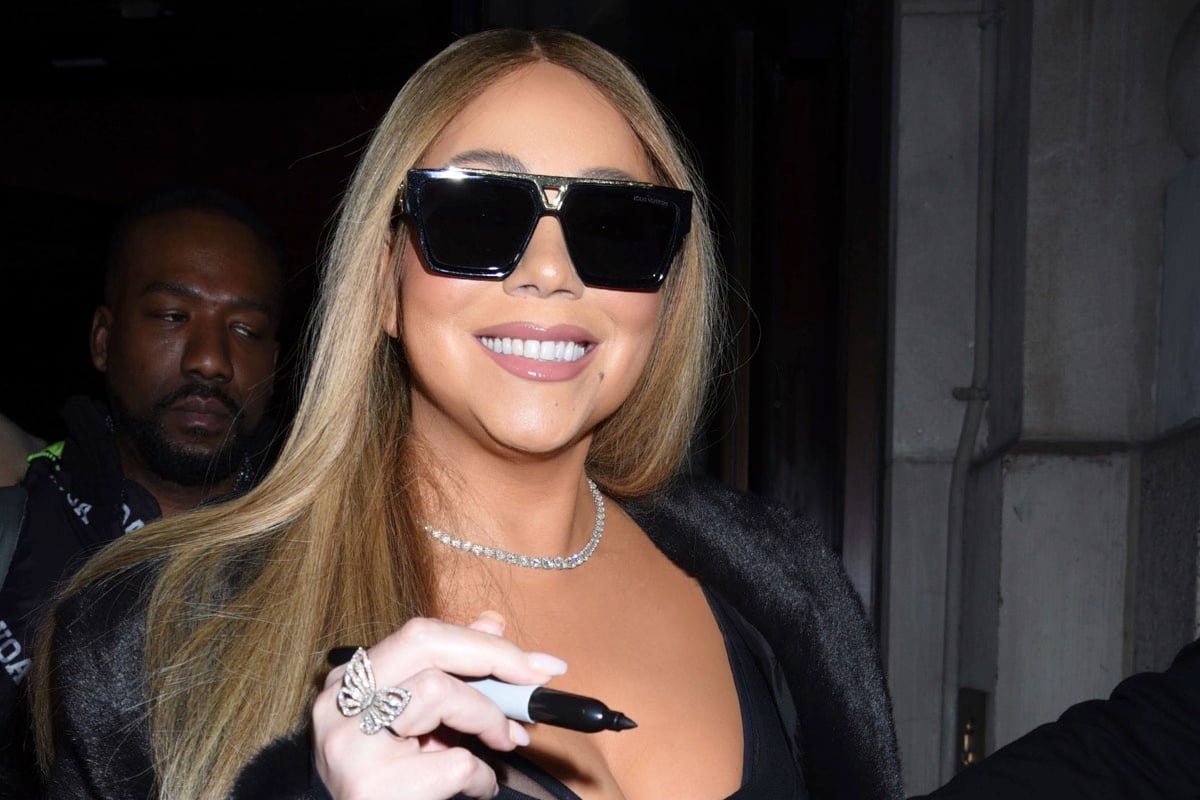


![Apple Watch Series 10 [GPS 42mm case] Smartwatch with Jet Black Aluminium Case with Black Sport Band - S/M. Fitness Tracker, ECG App, Always-On Retina Display, Water Resistant Jet Black Aluminium Case with Black Sport Band 42mm case + Small/Medium band GPS Without AppleCare+](https://m.media-amazon.com/images/I/6105jZyXyPL._AC_SL1500_._SL160_.jpg)